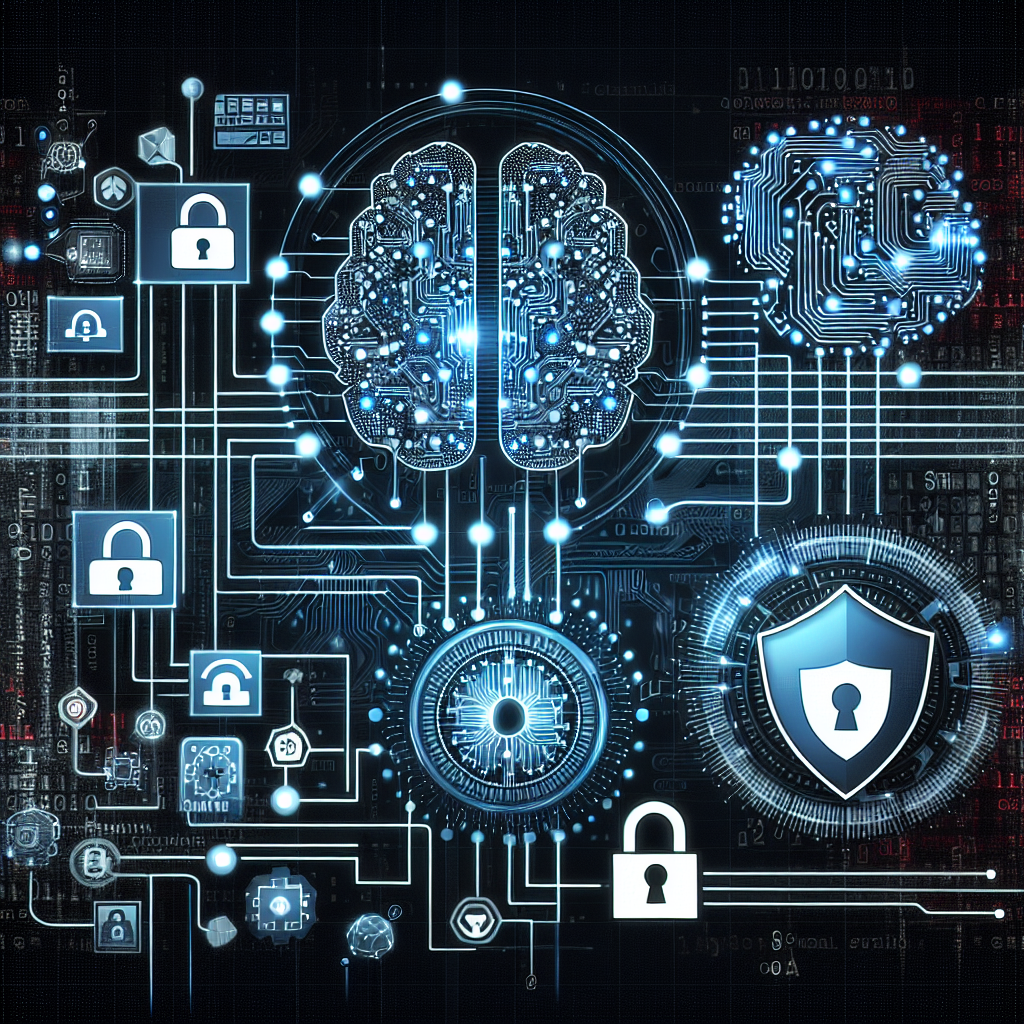In recent years, artificial intelligence (AI) has become increasingly prevalent in the field of cybersecurity. As cyber threats continue to evolve and become more sophisticated, organizations are turning to AI to help detect and respond to these threats in real-time. The impact of AI on cybersecurity is significant, as it has the potential to revolutionize the way we protect our digital assets and data.
One of the key ways in which AI is transforming cybersecurity is through its ability to analyze large amounts of data in real-time. Traditional cybersecurity solutions rely on predefined rules and signatures to detect threats, which can be limiting in the face of new and unknown threats. AI, on the other hand, can analyze vast amounts of data to identify patterns and anomalies that may indicate a cyber attack. This enables organizations to detect and respond to threats more quickly and effectively, reducing the risk of a successful cyber attack.
AI is also being used to automate routine cybersecurity tasks, freeing up security teams to focus on more complex and strategic issues. For example, AI-powered systems can automatically block suspicious IP addresses, quarantine infected devices, and prioritize security alerts based on their severity. This not only improves the efficiency of cybersecurity operations but also helps organizations respond to threats more quickly, reducing the potential impact of a cyber attack.
Another key benefit of AI in cybersecurity is its ability to adapt and learn from new threats. Machine learning algorithms can analyze past attacks to identify common tactics, techniques, and procedures used by cybercriminals. This information can then be used to train AI models to recognize similar patterns in future attacks, improving the overall effectiveness of cybersecurity defenses. As cyber threats continue to evolve, AI-powered systems can quickly adapt to new threats and vulnerabilities, helping organizations stay ahead of cybercriminals.
Despite the numerous benefits of AI in cybersecurity, there are also challenges and concerns that need to be addressed. One of the main concerns is the potential for AI to be manipulated by malicious actors. Cybercriminals could use AI to launch more sophisticated and targeted attacks, making it harder for organizations to detect and defend against them. As AI becomes more prevalent in cybersecurity, it is essential for organizations to implement robust security measures to protect AI systems from being compromised.
Another challenge is the lack of transparency in AI algorithms. Machine learning models can be complex and difficult to interpret, making it challenging for security teams to understand how AI systems make decisions. This can make it harder to trust AI-powered cybersecurity solutions and verify their effectiveness. To address this issue, organizations need to implement explainable AI techniques that provide insight into how AI systems make decisions, enabling security teams to better understand and trust AI-powered cybersecurity solutions.
In conclusion, the impact of AI on cybersecurity is significant, with the potential to revolutionize the way we protect our digital assets and data. AI-powered systems can analyze vast amounts of data in real-time, automate routine cybersecurity tasks, and adapt to new threats, helping organizations detect and respond to cyber threats more effectively. However, there are also challenges and concerns that need to be addressed, such as the potential for AI to be manipulated by malicious actors and the lack of transparency in AI algorithms. By implementing robust security measures and explainable AI techniques, organizations can leverage the benefits of AI in cybersecurity while mitigating potential risks.
FAQs:
1. How does AI help in detecting cyber threats?
AI helps in detecting cyber threats by analyzing large amounts of data in real-time to identify patterns and anomalies that may indicate a cyber attack. Machine learning algorithms can analyze past attacks to identify common tactics used by cybercriminals, enabling AI systems to detect and respond to threats more effectively.
2. Can AI be manipulated by malicious actors?
Yes, AI can be manipulated by malicious actors to launch more sophisticated and targeted attacks. It is essential for organizations to implement robust security measures to protect AI systems from being compromised and prevent cybercriminals from exploiting AI-powered cybersecurity solutions.
3. How can organizations trust AI-powered cybersecurity solutions?
Organizations can trust AI-powered cybersecurity solutions by implementing explainable AI techniques that provide insight into how AI systems make decisions. This enables security teams to better understand and verify the effectiveness of AI-powered cybersecurity solutions, building trust in their capabilities.
4. What are the benefits of AI in cybersecurity?
Some of the benefits of AI in cybersecurity include the ability to analyze large amounts of data in real-time, automate routine cybersecurity tasks, and adapt to new threats. AI-powered systems can help organizations detect and respond to cyber threats more effectively, improving the overall security posture of the organization.

